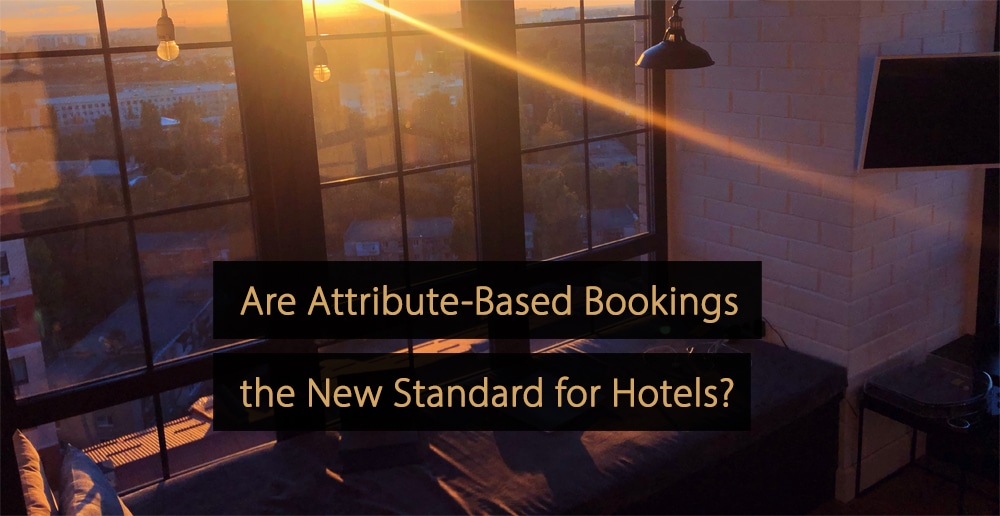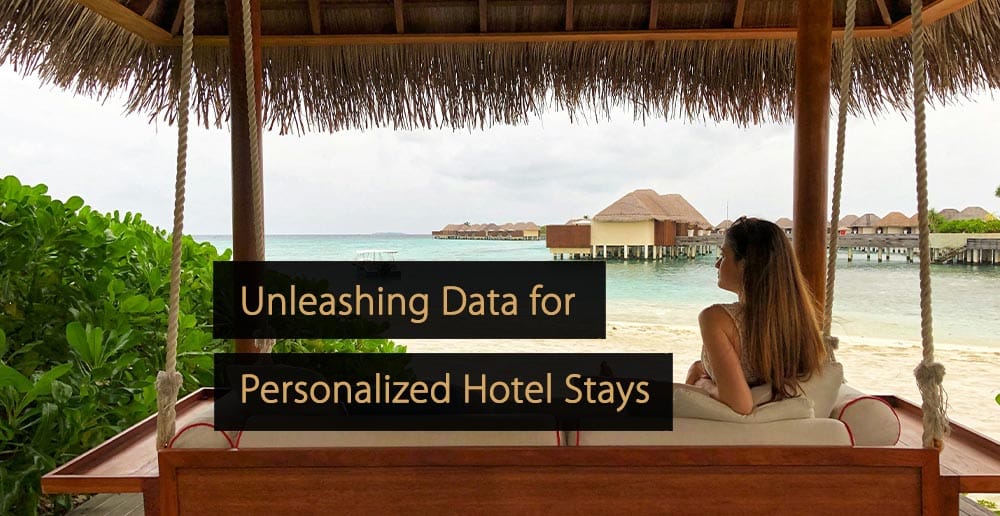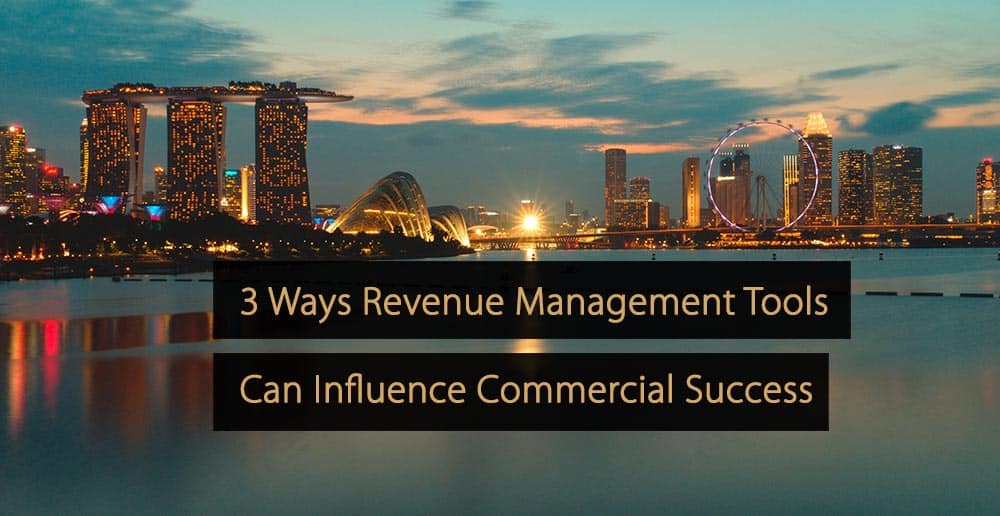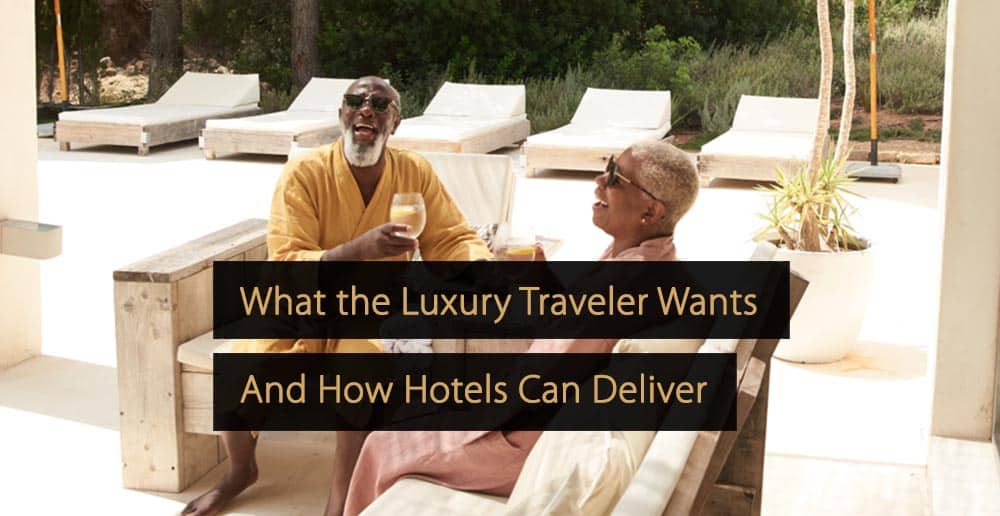The attribute model has become quite a buzzword in the hospitality industry in recent years. But what exactly is attribute-based booking, otherwise known as attribute-based selling? And which advantages can it bring your upselling initiative? Let’s see what the experts say, so you can make up your mind about whether to test this new approach at your hotel.
What is an Attribute-Based Booking?
Attribute-based booking means splitting the product, in this instance the hotel stay into separate features and services. Does that sound familiar? It might since airlines have been doing this for a while by letting you pick extras like seats with additional legroom, upgraded meals or express boarding. Like a hotel, you can use a similar model when selling your accommodation. Instead of offering rooms by category at a set price, you would unbundle your inventory to let guests select only the elements they want.
Unsurprisingly, an attribute-based booking would have a massive impact on the guest’s booking process because it puts guests in charge of what they will end up paying for. This makes room types less important and helps hotels avoid overbooking certain categories.
Video: How Attribute-Based Selling Works for Hotels
Another way hotels can use the attribute model is to better align customer needs and property amenities. Since guests can opt for their favourite features at the beginning of the booking process, it’s much easier for them to customise their hotel stay.
In terms of revenue management, changing demand for certain attributes or room characteristics will impact their prices and room availability. This also allows you to collect more in-depth data about what’s important to your guests and what they are willing to pay extra for.
Standard booking process
In the following example, a guest chooses the deluxe room, because it comes with a balcony and an ocean view.
Example: Standard booking process and room reservation
This same guest also wishes to stay on a higher floor, but the hotel doesn’t have a room category for that. To secure a room on a high floor, the guest would have to call or email the reservations team and ask for it. This still wouldn’t guarantee them a high-floor room though. The room does come with a workstation and access to the club floor. Our guest needs neither of the two but these attributes are a fixed part of the room rate.
Reserving a room with attribute-based booking
With the attribute model, this guest could handle their booking differently. First, they’d pick a room at the basic rate. Then they’d browse available attributes to find the ones they want to personalise their stay with. Since this is a weekend getaway, they’d skip the desk and choose an in-room Jacuzzi instead.
In the end, the hotel benefits from the attribute model in two ways: the guest spends more than they normally would book the desired extras and they are more satisfied because they got exactly what they wanted.
Attribute-Based Booking the New Standard?
Experts still don’t agree on whether attribute-based booking will soon be the new standard in hotel distribution. While some thought leaders are convinced that attribute-based selling is a milestone development others are still reluctant to embrace it.
Hotel distribution keeps getting more competitive and fast-paced. While this has evolved a lot during recent years, hotels still sell rooms by rate and room type. Guests have little choice when it comes to the features they pay for because it’s all included in the price. There are no standards for room categories across hotels and brands either so many guests don’t know exactly what to expect from their rooms. This often leads people to book the lowest category. Especially hotels that take big group bookings then risk overbooking the base category and losing revenue on free upgrades.
While attribute-based booking can address this problem, it’s not that easy to implement. Several commercial, technical and operational complications create major obstacles to getting started with attribute-based booking. The good news is, that you can easily transfer the principles of attribute-based booking to upselling.
Applying the Attribute Model to Upselling
Travellers want more customisation nowadays, but it’s often difficult to get that via a hotel website or an OTA. Some hotels make an effort and flood their website with personalisation options. Unfortunately, this overwhelms people and leads to them abandoning their bookings.
Pre-arrival upselling can address that problem. If you use a pre-arrival upselling platform, guests can first book the base category via your site or an OTA. They can tailor their reservation by upgrading to a higher category or opting for ancillary services through automated pre-arrival upselling and cross-selling.
Let’s revisit our guest who is looking for a high-floor sea-view room, to see how they might benefit from pre-arrival upselling.
- Step 1: The guest books a Sea View Standard room.
- Step 2: They receive targeted upselling offers. Now the guest has the chance to pick a room on a high floor, with a balcony and a Jacuzzi. And maybe they’ll even find another little extra they want to treat themselves with.
As you can see, a modular approach in your pre-arrival upselling has many benefits for your hotel:
- Guests can:
- tailor their stay as much/little as they want.
- customise their experience at their convenience.
Hotels can:
- upsell and cross-sell extra room upgrades and ancillary services.
- promote off-site experiences (e.g. excursions or activities managed by local partners).
- improve their targeting and segmentation since upselling tools let them send the right offer to the right guest. No more endless lists on your website that force people to scroll and search forever.
- A modular approach via pre-arrival upselling works now.
Unfortunately, no technology fully supports attribute-based booking right now. Developing and implementing this at scale will still take time. However, targeted pre-arrival upselling and cross-selling is already possible and brings excellent results.
Free Report: Hospitality Upsell Market Report Per Region
Upselling drives additional profit from existing customers and should be part of every hotel marketing and sales strategy these days. And for a good reason; it increases your bottom line results.Within the "Hospitality Upsell Market Report Per Region", you discover upsell results of fellow hoteliers and learn about the best-converting upsell deals per market. Click here to download the free report "Hospitality Upsell Market Report Per Region".
For now, attribute-based upselling is the most practical, easy-to-implement way to take advantage of the benefits of attribute-based booking without massively revamping a hotel’s distribution. On to you now! Would you test the attribute model and integrate it into your upselling initiative?
More Tips to Grow Your Business
Revfine.com is the leading knowledge platform for the hospitality and travel industry. Professionals use our insights, strategies, and actionable tips to get inspired, optimize revenue, innovate processes, and improve customer experience.Explore expert advice on management, marketing, revenue management, operations, software, and technology in our dedicated Hotel, Hospitality, and Travel & Tourism categories.










Leave A Comment